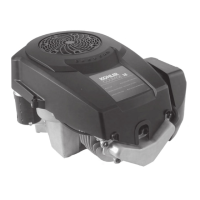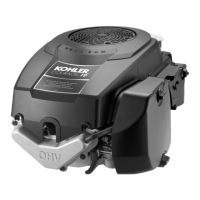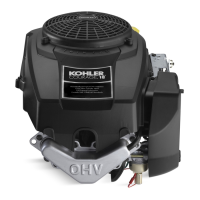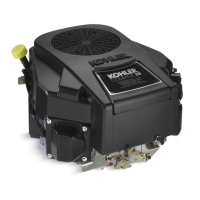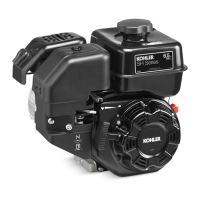6.3
Section 6
Lubrication System
6
NOTE: To prevent extensive engine wear or
damage, always maintain the proper oil
level in the crankcase. Never operate
the engine with the oil level below the
‘‘L’’ mark or over the ‘‘F’’ mark on the
dipstick.
Full-Pressure Lubrication System
Operation
This engine uses a full-pressure lubrication system
to deliver oil for internal lubrication. A cam driven,
high efficiency Gerotor
™
oil pump located in the
crankcase maintains proper oil flow and oil pressure
even at low speeds and high operating temperatures.
Oil is supplied from the pump via two circuits to the
cranksha main bearings, cranksha, connecting
rod bearing surfaces, cam gears, and axis shas. An
integral pressure relief valve within the oil pump
limits the maximum pressure of the system.
For a cold engine at start up, the oil pressure can
go up to 20-25 psi. For a warm (normal operating
temperature) engine at idle speed, the oil pressure can
go down to 5 psi.
Service
The oil pump rotors typically require no servicing, if
normal maintenance is performed as outlined in
Section 1.
The closure plate must be removed for access to the
oil pump and the rotors. Refer to the Disassembly
and Reassembly, Sections (8 and 10), for removal and
reinstallation procedures.
Figure 6-7. Oil Pump on Intake Cam Shaft
(Gerotors Removed from Pump Housing).
Oil Filter
These engines are equipped with a full-flow oil filter.
See Figure 6-8.
The oil filter helps remove sludge and other
combustion by-products from the oil. It also extends
the oil change interval and cools the oil.
Oil Filter
Figure 6-8. Oil Filter Location.
Oil Sentry
™
Some engines are equipped with an optional Oil
Sentry™ switch. This switch is designed to prevent
the engine from starting in a low oil or no oil
condition. The Oil Sentry™ may not shut down
a running engine before damage occurs. In some
applications this switch may activate a warning signal.
Read your equipment manuals for more information.
Operation
The pressure switch is designed to break contact
as the oil pressure increases and make contact as
the oil pressure decreases. At oil pressure above
approximately 2 to 5 psi, the switch contacts open.
At oil pressures below approximately 2 to 5 psi, the
switch contacts close.
On vehicular applications (lawn tractors, mowers,
etc.), the pressure switch can be used to activate a
low oil warning light. On stationary or unaended
applications, the pressure switch can be used to
ground the ignition module to stop the engine.
NOTE: Oil Sentry
™
is not a substitute for checking
the oil level BEFORE EACH USE. Make sure
the oil level is maintained up to the ‘‘F’’ mark
on the dipstick. See Figure 6-5.
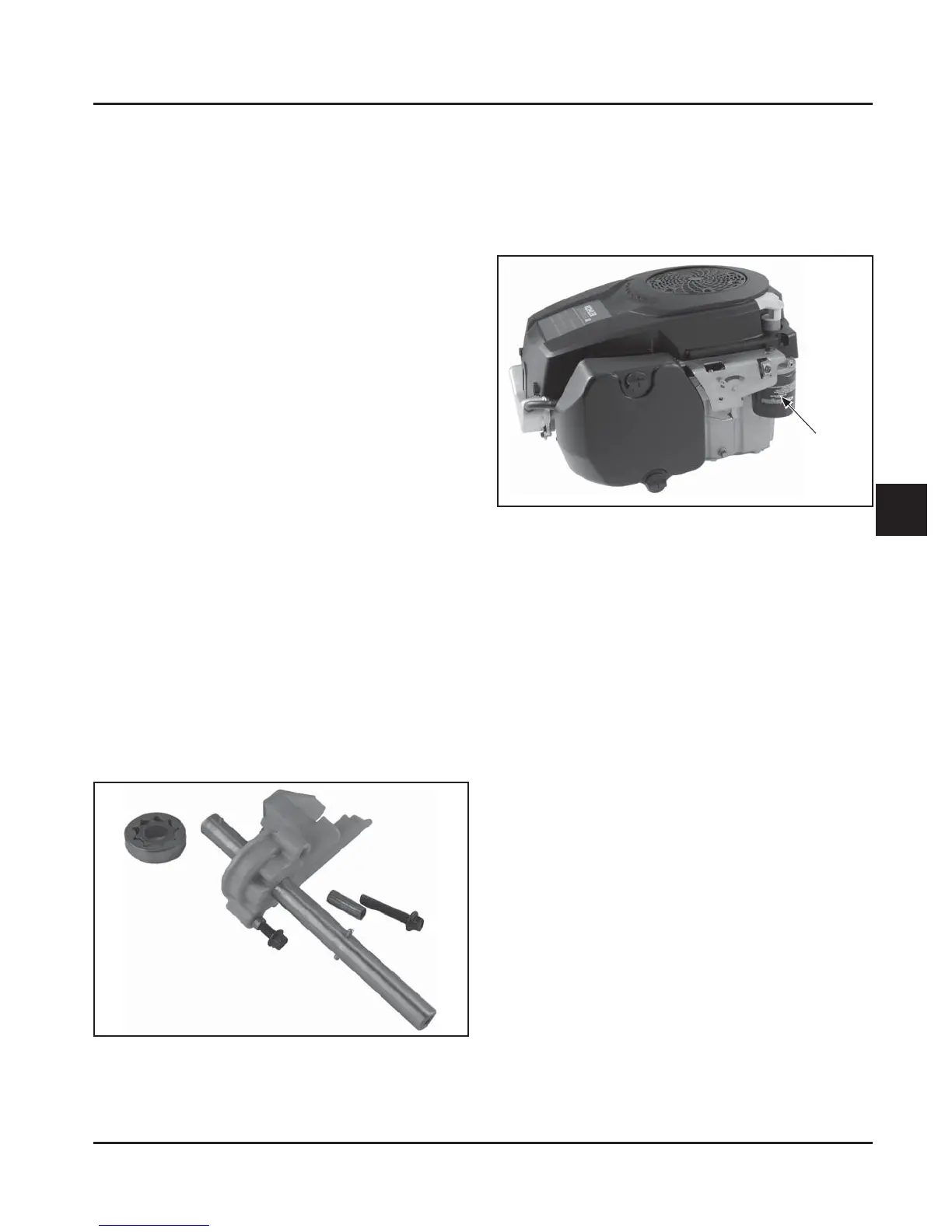